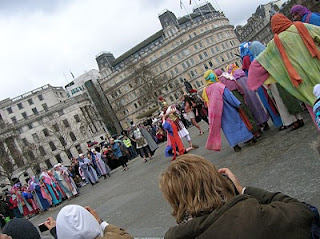Tory election candidate Philip Lardner has been suspended for describing gay people on his website as "not normal", the party has confirmed.The first point worthy of comment is that the BBC report misrepresents what Philip Lardner would appear to have said on his website (before it was censored). It seriously misrepresents him to say that he described gay people as "not normal". Even a cursory reading of the quoted words later in the BBC report show that Mr Lardner's descriptor of "not normal" referred to homosexual behaviour, and expressed what he believed about a form of behaviour, and not what he believed about the people who form a section of our society. If the Conservative Party's decision to suspend Mr Lardner from the Party is based on the same misrepresentation of his words, then he is the victim of a serious injustice.
Scottish Conservatives chairman Andrew Fulton described the Ayrshire North and Arran candidate's comments as "deeply offensive and unacceptable".
"These views have no place in the modern Conservative party," he said. ....
[Mr Lardner's] suspension was provoked by comments in the "What I believe in" section of his website, under the sub-heading: "Homosexuality is not 'normal behaviour'."
The former Territorial Army soldier wrote of his support for the controversial "clause 28", which was introduced by the Conservatives under Margaret Thatcher and banned public bodies from promoting homosexuality. ...
... Mr Lardner wrote: "As your MP I will support the rights of parents and teachers to refuse to have their children taught that homosexuality is 'normal' behaviour or an equal lifestyle choice to traditional marriage.
"I will always support the rights of homosexuals to be treated within concepts of (common sense) equality and respect, and defend their rights to choose to live the way they want in private, but I will not accept that their behaviour is 'normal' or encourage children to indulge in it.
"Toleration and understanding is one thing, but the state promotion of homosexuality is quite another."
The comments have since been removed.
The second point is to compare the quoted views of Mr Lardner to the teaching of the Catholic Church. As expressed in the Catechism of the Catholic Church, this teaching recognises that "homosexual acts are intrisically disordered" (n.2357); the Compendium of the Catechism of the Catholic Church includes homosexual acts as one of seven "grave sins against chastity" (n.492). Now, there is a subtle point of political philosophy as to whether or not a statement of one's own moral beliefs have a place in public, political discourse - Rocco Buttiglione argued, for example, when talking about his being prevented from taking up a position as a European Union commissioner after a controversy about his views on homosexuality, that, in the political sphere, the real point was that of accepting the principle of "non-discrimination" and not one of insisting that those in public office hold one particular moral view or another on the matter. So a Catholic candidate standing for the Conservative Party might well affirm the principle of non-discrimination with regard to the treatment of homosexual persons, but not expect that they will have to also affirm their belief in the moral licitness of homosexual behaviours (preferring, perhaps, in the political sphere to keep a certian silence about their own beliefs). And this might also lead them on to want to say, as did Mr Lardner, that - also based on the principle of non-discrimination - they would support the rights of teachers and parents who out of conscience do not want homosexual behaviour to be taught to children as morally equivalent to chaste heterosexual behaviour.
Which leads me to ask: If the Scottish Conservatives Chairman considers that Mr Lardner's views "have no place in the modern Conservative party", will he come clean and also admit that this is equivalent to saying that "Catholic views have no place in the modern Conservative party"?
[Let's also read this in the light of David Cameron's remarks about Pope Benedict's forthcoming visit to the United Kingdom, made during the recent television debate: here and here.]
H/T to Kate, where there is some additional reporting. Kate's post suggests that Mr Lardner's website did (before being censored) express something of his own moral beliefs.
























